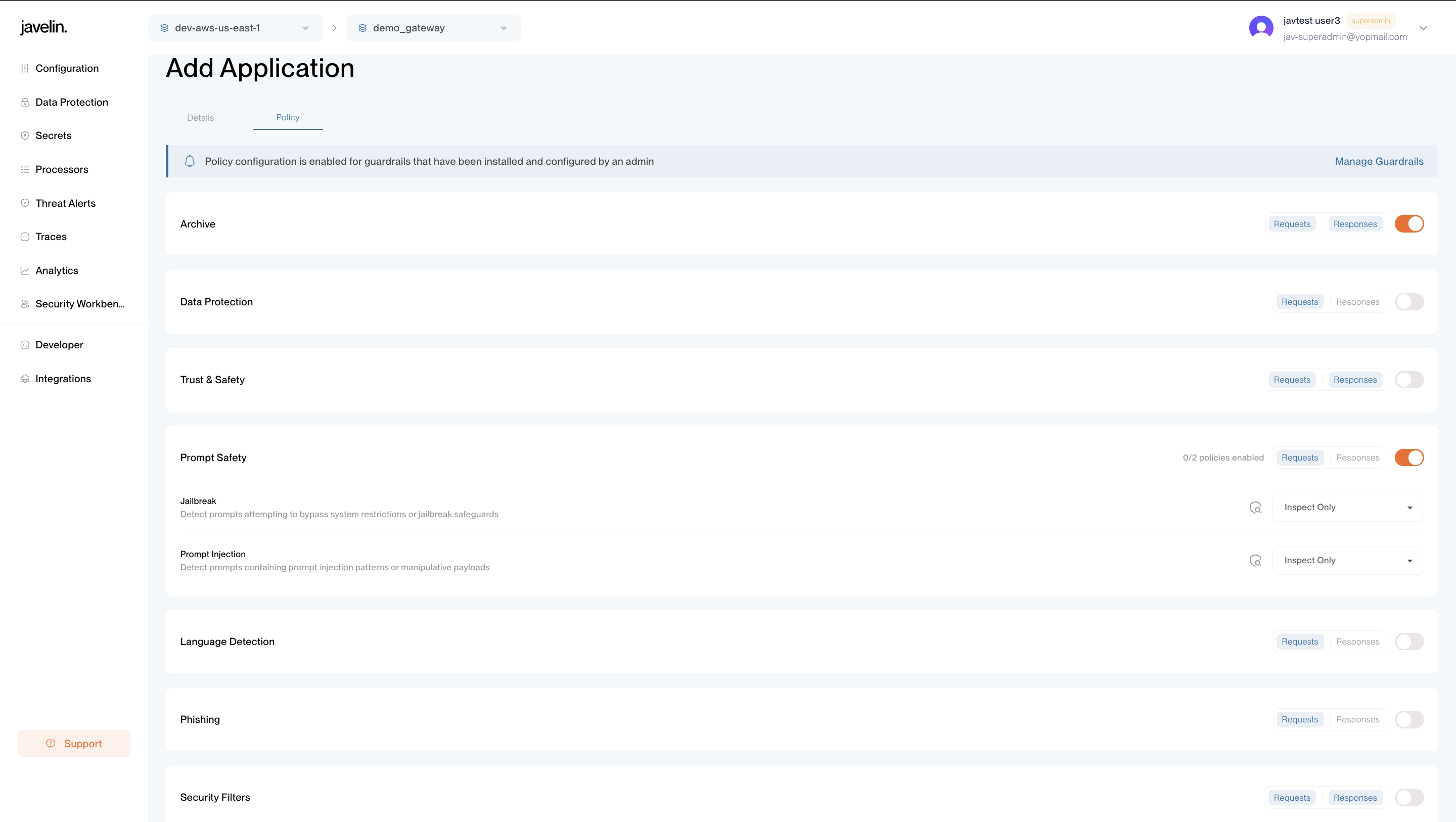Policy Configuration
Policies in Javelin define safety, moderation, and compliance behavior at the application level.
They allow you to enforce organizational standards for data protection, content moderation, and secure usage of language models. By configuring policies, you can ensure that all requests made through your applications adhere to compliance requirements, prevent misuse, and maintain the integrity of your AI systems.

Policy Configuration Structure
policy:
enabled: true
archive:
enabled: true
retention: 7
dlp:
enabled: true
strategy: "test"
prompt_safety:
enabled: true
content_types: []
reject_prompt: ""
content_filter:
enabled: true
content_types: []
reject_prompt: ""
...
Policy Fields
| Name | Type | Required | Default | Description |
|---|---|---|---|---|
enabled | boolean | Yes | true | Activates policy enforcement at the application level. Always true. |
archive | object | No | — | Archives request and response data for traceability and audit. |
dlp | object | No | — | Detects and prevents the exposure of sensitive information such as personally identifiable data, credentials, or confidential terms in model interactions. |
content_filter | object | No | — | Filters harmful or unsafe content including misinformation, violence, or other policy-violating categories to ensure model output remains trustworthy. |
prompt_safety | object | No | — | Protects against manipulation attempts like prompt injections or jailbreaks that try to bypass model restrictions or redirect behavior. |
language | object | No | — | Applies restrictions on unsupported or disallowed languages, ensuring the model communicates only in approved languages. |
checkphish | object | No | — | Identifies and blocks phishing attempts by detecting suspicious or malicious URLs within prompts or outputs. |
security_filters | object | No | — | Detects and blocks potentially unsafe input patterns such as code blocks, non-ASCII payloads, or invisible characters that could impact model behavior or system integrity. |
note
The top-level enabled: true field is always set to true for application-level policies.
This ensures application-level policy overrides route-level policies, enforcing guardrails regardless of individual route settings.
Policy Precedence
- If a route policy is enabled, it takes precedence and is enforced.
- If a route policy is disabled or not defined, the application-level policy is enforced.
- This ensures that route-specific requirements can override application-wide defaults, while still providing a baseline of protection at the application level when no route-specific policy is active.
content_types Rules
Each rule object can include:
operator: greater_than # For most restrictions; use 'equals' for checkphish
restriction: sexual # The type of content to restrict
probability_threshold: 0.25 # 0.25, 0.5, 0.75 (for checkphish: 0 or 1)
| Name | Type | Required | Description |
|---|---|---|---|
operator | string | Yes | greater_than for most restrictions; equals for checkphish. |
restriction | string | Yes | The type of content to restrict (e.g., hate_speech, jailbreak, checkphish). |
probability_threshold | float | Yes | Thresholds: 0.25, 0.5, 0.75. For checkphish, values are 0 or 1. Omit the rule if threshold is 0. |
For detailed explanations of each policy and processor, see Processors Overview.